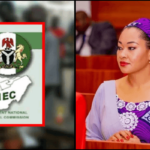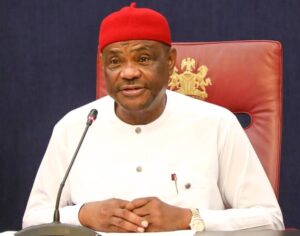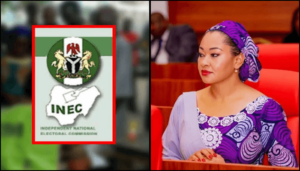Presidential candidate of the Peoples Democratic Party (PDP) in the 2023 election, Atiku Abubakar, made four arguments on why President Bola Ahmed Tinubu should be sacked by the Presidential Election Petition Court (PEPC).
Atiku presented his argument before a panel of five justices headed by Justice Haruna Tsammani. The panel started sitting on May 8. 2023 where they received evidence, hear testimonies from witnesses and listened to arguments from lawyers.
Atiku was represented by 40 lawyers among whom are 19 Senior Advocates of Nigeria (SAN). Top among them include Joe Kyari Gadzama, Mike Ozekhome, Chris Uche, and others.
The PEPC began by receiving written petitions from aggrieved candidates who participated in the election. As one of the aggrieved candidates, Atiku submitted a written petition.
The petition detailed several alleged infractions, including alleged manipulation of the Bimodal Voters Accreditation System (BVAS), over-bloated votes for the All Progressives Congress (APC) presidential candidate, Bola Tinubu, and other breaches which he said happened during the election.
The PDP candidate initially listed 100 witnesses to prove the allegation that he was rigged out. He only presented 27 in the three weeks allocated to every petitioner to prove their case.
Atiku’s first argument was that the technology – Bimodal Voters Accreditation System (BVAS) used during the election for both accreditation of voters and upload of polling units’ results to the INEC Result Viewing Portal, were altered and tampered to pave way for rigging.
He says originally, a critical software in the BVAS, the Voters Accreditation System, was designed and configured in-house by Chidi Nwafor, who headed the ICT team of INEC. But some months before the presidential election, Nwafor was transferred out of the ICT department of INEC in Abuja to become ‘Administrative Secretary’ in Enugu.
Atiku further alleged that INEC then brought in an ICT consultant, a man called Suleiman Farouk, who then introduced a technology in the BVAS.
He said it is that technology, which is the Device Management System that allowed the results of the presidential election to be quarantined long enough for agents of Tinubu to change the original results and input the wrong ones.
Recall that on the day of the presidential election, results were not uploaded in the first 24 hours. INEC claimed it was a technical glitch. But Atiku argued there was no glitch. He brought witnesses to make that case during the hearing session.
Atiku’s second argument to the justices of the Presidential Election Petition Court was that Tinubu failed to secure 25 per cent of the votes in the Federal Capital Territory.
The PDP candidate argued that section 134(2) of the constitution demands that a winner of a presidential election must aside from winning majority of the votes, and winning 25 per cent of the votes in the nation’s 36 state, must also win 25 per cent in the Federal Capital Territory.
Atiku’s third argument is that Tinubu could not have validly won the election because the number of votes cancelled during the election far outweighs the margin of lead.
Recall that Tinubu was declared winner of the election after polling 8,794,726 votes. Atiku came second by polling 6,984,520 votes. The margin of lead is therefore 1,810,206.
Atiku argued that the number of votes cancelled across many polling units in the country far supersede 1,810,206 votes.
The fourth argument made by Atiku is that Tinubu was not qualified to contest the election on grounds of alleged ‘dubious academic credentials,’ and other such sundry allegations.










More Stories
Abure loses out as Supreme Court nullifies his recognition as Labour Party National Chairman
Akpabio secures court order banning Natasha from talking about sexual harassment allegation
Wike to critics: ‘I will live to sign condolence letters of those who said I collapsed’